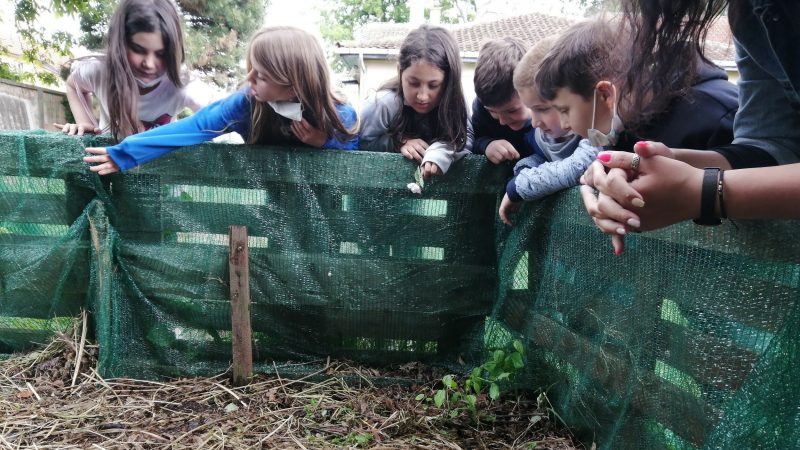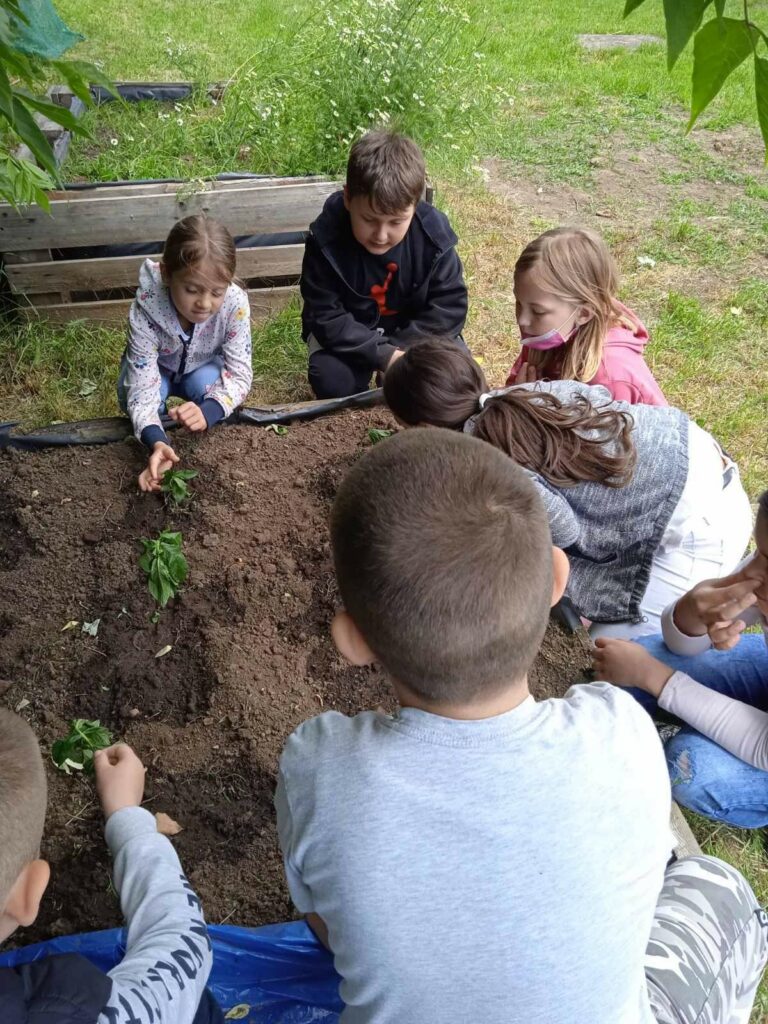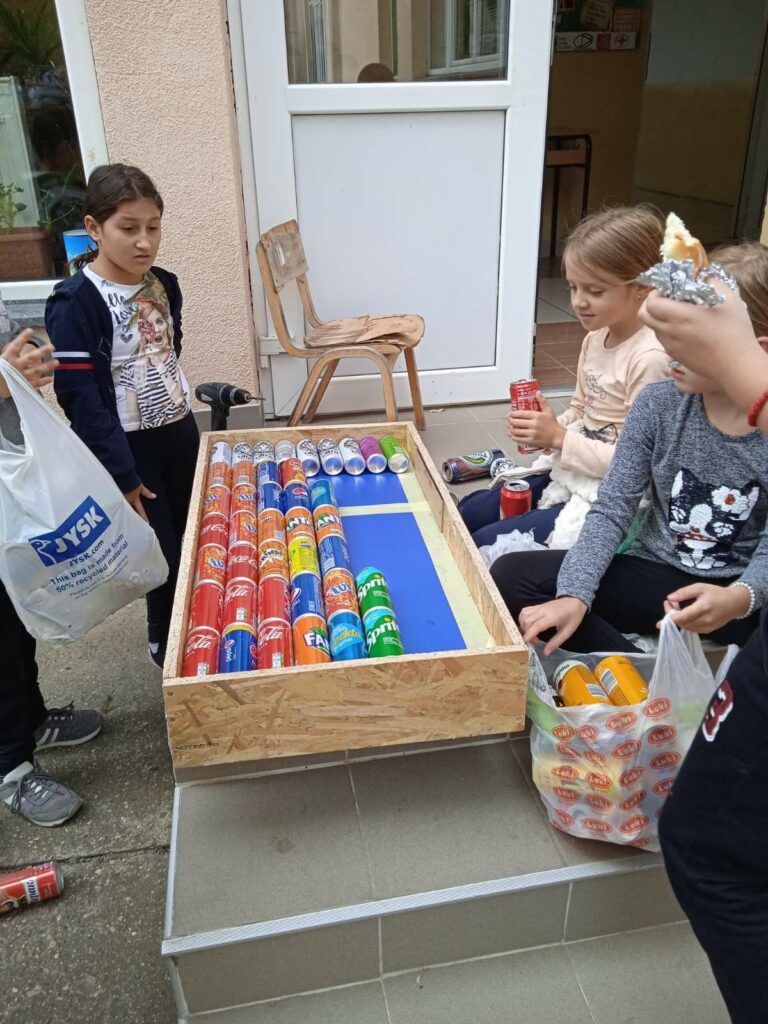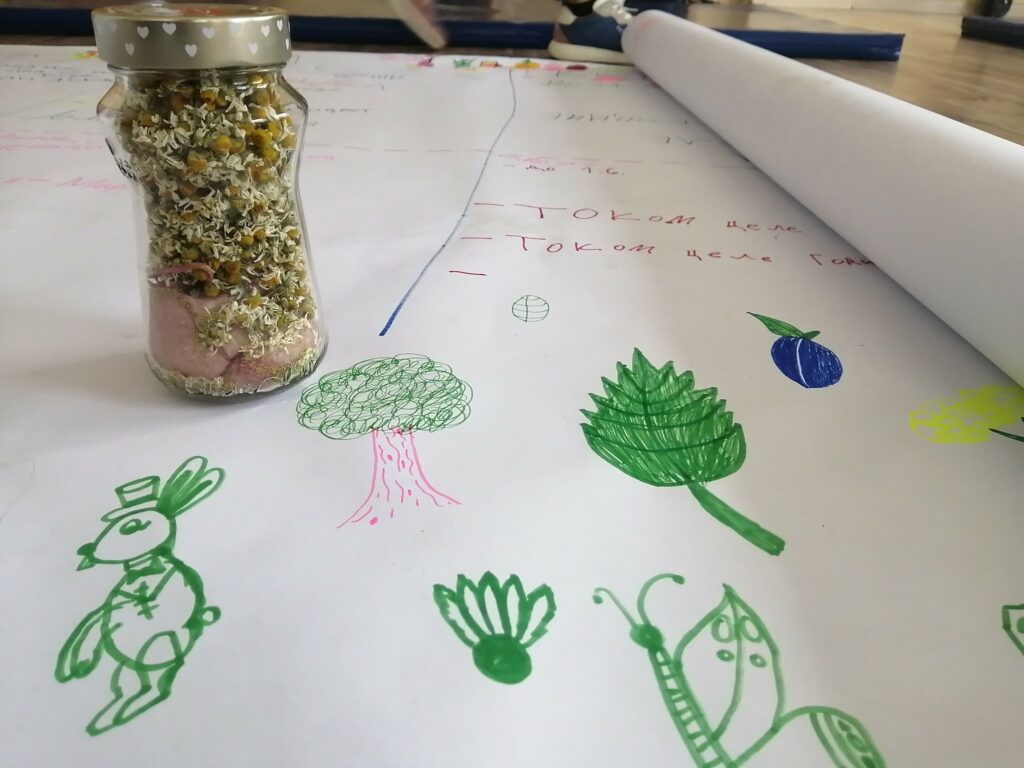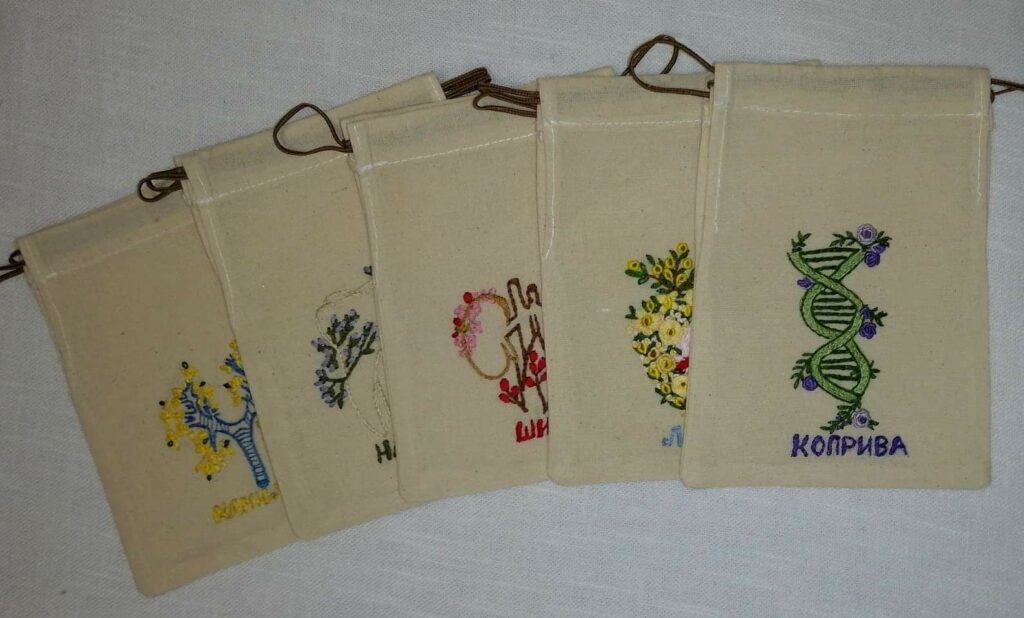The living-lab project is developed by a satellite school located in the village of Ljukovo in rural area of Serbia. The school, which highly encourages experimentation and creativity among students, gives a large space to its garden. It’s the main place of encounter for students and school staff, a place for playing and enjoying free time but also a place for learning. The school garden is rich with artefacts created by students’ parents and local entrepreneurs which bear witness to the openness of this school and its flexible model of organizing educational processes.
This school community started its living-lab project after identifying that children spend less and less time outdoors and develop a lack of knowledge about nature. They also identified that the community wastes food by throwing out-of-date and unsold products instead of turning it into compost.
Primary students and teachers approached relevant societal actors to join their project. They collaborated with a local grocery store and a restaurant that provided food waste, a doctor from the Public Health Institute who conducted a workshop on the health benefits of certain herbs, and members of a local NGO who trained the students on how to create embroidery packaging for herbal tea bags.
Teachers, the school pedagogue, students and the rest of the school community, developed a living-lab project action plan that includes:
- Creating a school garden of tea hers;
- Publishing a seasonal calendar with information about when herbs should be planted or picked;
- Building a composting site for the school garden with food waste collected from a local grocery store, a local restaurant and children’s home;
- Designing an open classroom with a solar drying machine for herbs;
- Designing ecological tea packages with illustration and health information.
Teachers, students and societal actors started to collaborate more than a year ago. Here is what they are saying about their Open Schooling experience:
“These are not the same children as they were when we started the project. Now, they are so used to engage with adults that when people from the local community come to the classroom, students are proud to show them around.” Tijana Djuricic, teacher
“I am just so happy and proud for what we created here.” School director
“It is our garden. We have many plans for it.” Students involved in the project
“We are not sure how much children will be able to make on their own, but our task is to support them as much as we can.” Societal actors involved in the project
Contact
Jelena Joksimović
National coordinator – Center for the promotion of science
Mail
School website

